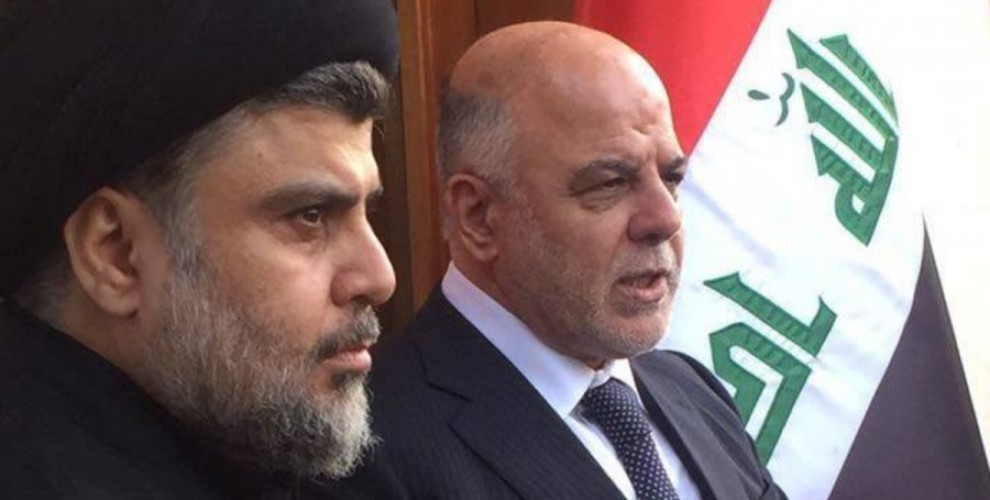16 groups form goverment coalition in Iraq
Shia leader Muqtada Sadr and incumbent Prime Minister Haidar Al Abadi have formed a coalition with a wide base made up of 16 groups in Iraq.
Shia leader Muqtada Sadr and incumbent Prime Minister Haidar Al Abadi have formed a coalition with a wide base made up of 16 groups in Iraq.

16 political groups in Iraq including Haidar Al Abadi’s and Muqtada Sadr’s lists have come to an agreement for a wide-based governmental coalition on Sunday night. The agreement came before the official opening of the Parliament today, on September 3.
The coalition makes up 177 MPs, more than half the seats in the Parliament with 329 seats in total.
Haidar Al Abadi, who has support from the West and came third in the elections with 42 seats, will be able to keep his position with this coalition.
The Parliament will open today. The parliamentary president, who is expected to be Sunni as per tradition, will be elected first in the session. Two deputies will be elected next.
The MPs have to elect a President, who is expected to be Kurdish as per tradition, in the next 30 days. The President will give authority to the largest coalition to form the next government in 15 days.
Sadr’s list had come first in the May 12 elections with 54 seats in an alliance with communists. The governmental coalition includes the secular Iyad Allawi’s Wataniyya list with 21 seats, as well as Sadr and Abadi.
Sadr had issued a surprise statement in mid-June and announced that he formed an alliance with the Fetih Alliance, made up of former Hashd al Shaai fighters and backed by Iran. But the Fetih Alliance later sought to form a government with the Rule of Law list by Nuri Al Maliki which holds 26 seats.